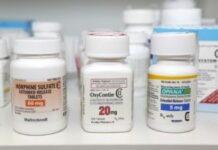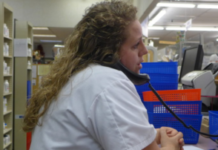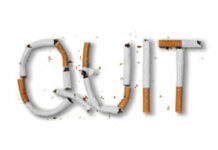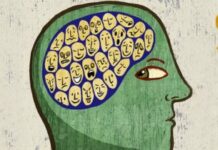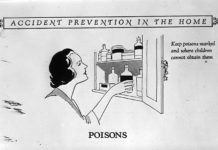Are Pharmaceutical Companies to Blame for the Opioid Epidemic?
From The Atlantic: As opioid abuse rises, some attorneys general and advocates are filing lawsuits against pharmaceutical companies for misleading doctors and the public about...
Challenges and Visions for the “Mental Heatlh” System
I envision a world where there is no need for a mental health field/system because communities are strong and we have a holistic understanding...
The Social Life of Opioids
From Scientific American: Increasing prescription rates of opioid painkillers are often blamed for America's current opioid crisis. However, a growing body of research suggests that...
Playpen Rats Making Popular Comeback, Defy the Brain-disease Model of Addiction
-University of Queensland addictions experts challenge last year's Nature editorial that claimed there is a scientific "consensus" that addiction is a brain disease.
The Unmedicated Life
It has been 7.5 years since I got off benzos, the drug that damaged me the most, and 6.75 years off all meds; the final medicine I tapered was a tricyclic antidepressant, nortriptyline, in autumn 2006. Since that time, I have not taken another psychoactive medicine, nor have I had any desire to. Neither have I sought out therapy or the like. Personally, I’m sick of labels, sick of the industry, sick of talking about my “problems,” sick of navel-gazing, and would just rather live.
Study Finds High Risk for Suicide Following Psychiatric Hospitalization
Patients are at an increased risk for suicide during the three months immediately following discharge from an inpatient psychiatric hospital.
“West Virginia Allows Painkiller Addicts to Sue Prescribing Doctors”
“CBS News went to West Virginia, a state that is attempting a drastic solution: allowing addicts to sue the doctors who got them hooked.”
Gabapentin: A New Target for Abuse
From STAT: Gabapentin, a drug that acts as a sedative and is also used to treat conditions including nerve pain, epilepsy, restless leg syndrome, and...
Alcoholism — Is it a Disease?
We are told a story about illness, and that story serves a mindset that underlies the darkness that we feel all around us and within us. The mindset is that we are flesh robots, floating on a dead rock, in the middle of nowhere. But we are in the midst of a paradigm shift.
Study Examines Experience of Long-Term Antidepressant Use
The use of antidepressants has increased substantially in recent years, yet relatively few studies have asked patients about their experiences with these drugs. A...
Up in Smoke: Speculative Claims about Smoking Cessation Drug
From HealthNewsReview: A recent news release from Florida Atlantic University has urged wider use of Chantix, a prescription medication for smoking cessation. The release made...
Racism is Wreaking Havoc on Our Mental Health
In this interview for HuffPost Canada, Uppala Chandraesekera, the director of public policy at the Canadian Mental Health Association Toronto and the first mental health expert...
Quitting Smoking May Help with Depression
A new study suggests that smoking cessation is related to depressive symptom improvement, but that depression may also make it harder to quit.
How to Escape Psychiatry as a Teen: Interview with a Survivor
When I lived in Massachusetts I taught yoga and led writing groups for alternative mental health communities. While the organizations I worked for were alternative, many of the students and participants were heavily drugged with psychiatric pharmaceuticals. There was one skinny teenager I'd never have forgotten who listed the drugs he was on for me once in the yoga room after class: a long list of stimulants, neuroleptics, moods stabilizers; far too many drugs and classes of drugs to remember. I was at the housewarming party of an old friend, and who should walk in but that boy who used to come to my yoga classes and writing groups religiously. And he was no longer a boy; he was now a young man. “I'm thinking yoga teacher,” he said. I nodded. Did he remember where? “I'm not stupid,” he said, as if reading my mind. “I'm not on drugs anymore. I'm not stupid anymore.”
To Treat Pain, PTSD and Other Ills, Veterans Try Tai Chi
From NPR: The U.S. Department of Veterans Affairs has launched a new program that offers wheelchair tai chi classes in order to help veterans manage...
Researchers Gain Insight into Stimulant Effects on Brain
Researchers believe that they have gained a clearer understanding of how cocaine, amphetamines and related psychostimulant drugs "disrupt the normal functioning of the dopamine transporter in the brain."
Experts Warn of an Emerging ‘Stimulant Epidemic’
From Medscape: While policymakers and members of the general public are justifiably focused on addressing the opioid epidemic, there is another epidemic that may be...
Why Mental Health Systems Should Be Organized Under Alcohol and Drug Systems
While I was in charge of the public systems for both mental health and addictions in Oregon, I found it a challenge to maintain an equal focus on alcohol/drug problems compared to mental health. One big reason for the emphasis on mental health was that the mental health budget was big, about 6 times greater than that for addictions. And that doesn’t even count the hidden funding for psychiatric drugs which probably added another 30 or 40% to mental health —atypical antipsychotics are a lot more expensive than Antabuse.
One-sixth of College Students Misuse ADHD Stimulants
About 17% of college students take stimulants such as Ritalin and Adderall, primarily because they believe the drugs will help them improve their academic performance.
Ireland to Decriminalise Heroin, Cocaine and Cannabis
The UK Independent reports that Ireland is moving toward a policy of decriminalizing small amount of drugs like heroin, cocaine, and cannabis in what amounts to a “radical cultural shift.” While it would remain a crime to profit from the sale of these substances, users will have specially designated areas for safe use. The chief of Ireland’s National Drugs Strategy told the paper: “I am firmly of the view that there needs to be a cultural shift in how we regard substance misuse if we are to break this cycle and make a serious attempt to tackle drug and alcohol addiction.”
Why We’re a Culture of Addicts
From Uplift Connect: Addiction tends to be viewed through one of two lenses - as a genetic disease or a moral failure. According to Dr. Gabor...
Coroner Warns of Deaths Involving Young People and Drugs
From The Irish News: Steven Coyle, a 27-year-old father of two, recently died of complications resulting from a cocktail of prescription medications for depression, anxiety,...
Proove Biosciences Sells Off Assets as CEO Departs
From STAT: Proove Biosciences, which sold dubious DNA tests to predict opioid addiction risk, has been placed into court-ordered receivership for restructuring and asset sale. Experts...
Large Increase in Poison Control Calls for Children Taking ADHD Drugs
New data shows that calls to US poison control centers have increased significantly for children taking stimulant ADHD drugs.
Towards a Ban on Psychiatrically Diagnosing and Drugging Children
Instead of hope and enthusiasm for their futures, too many children now grow up believing they are inherently defective, and controlled by bad genes and biochemical imbalances. They are shackled by the idea that they have ADHD and then subdued by the drugs that inevitably go along with the diagnosis. Unless something intervenes, many of them will go on to pass their days on Earth in a drug-impaired, demoralized state.

